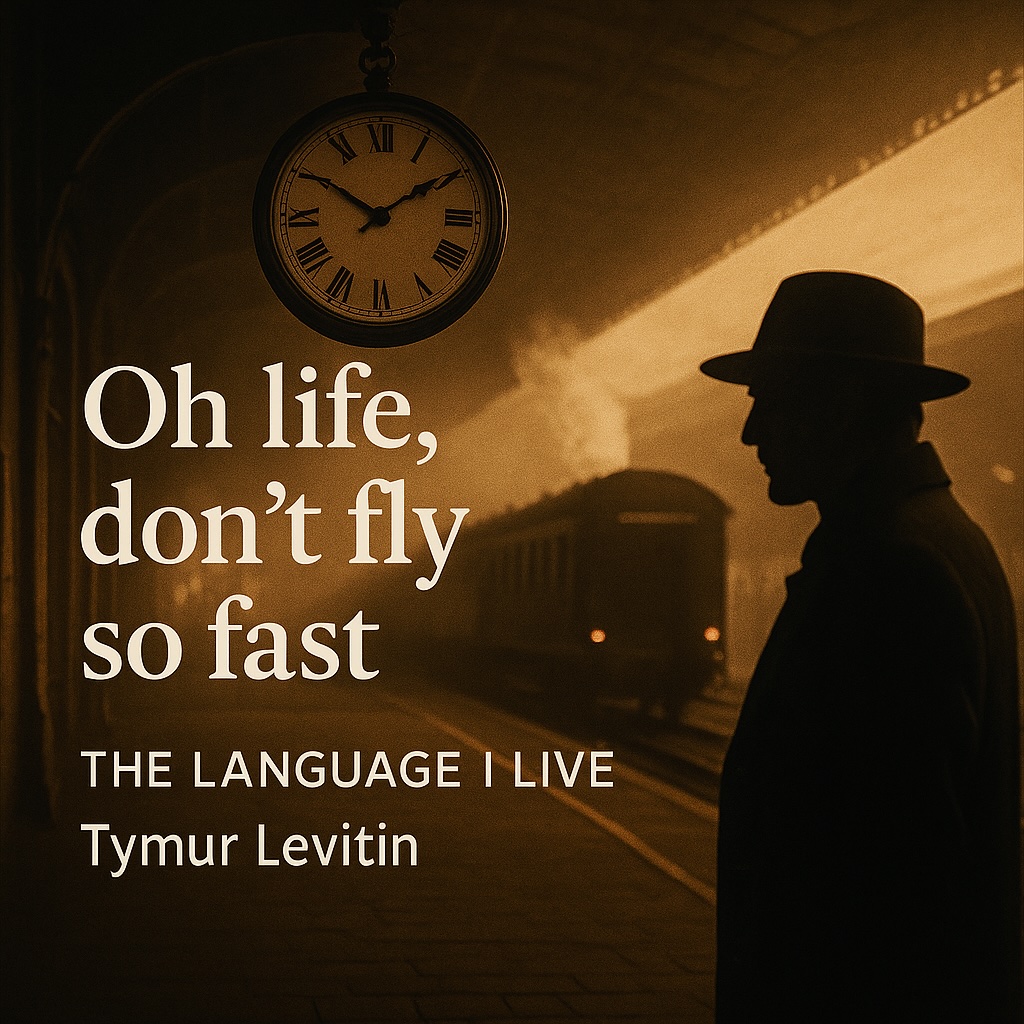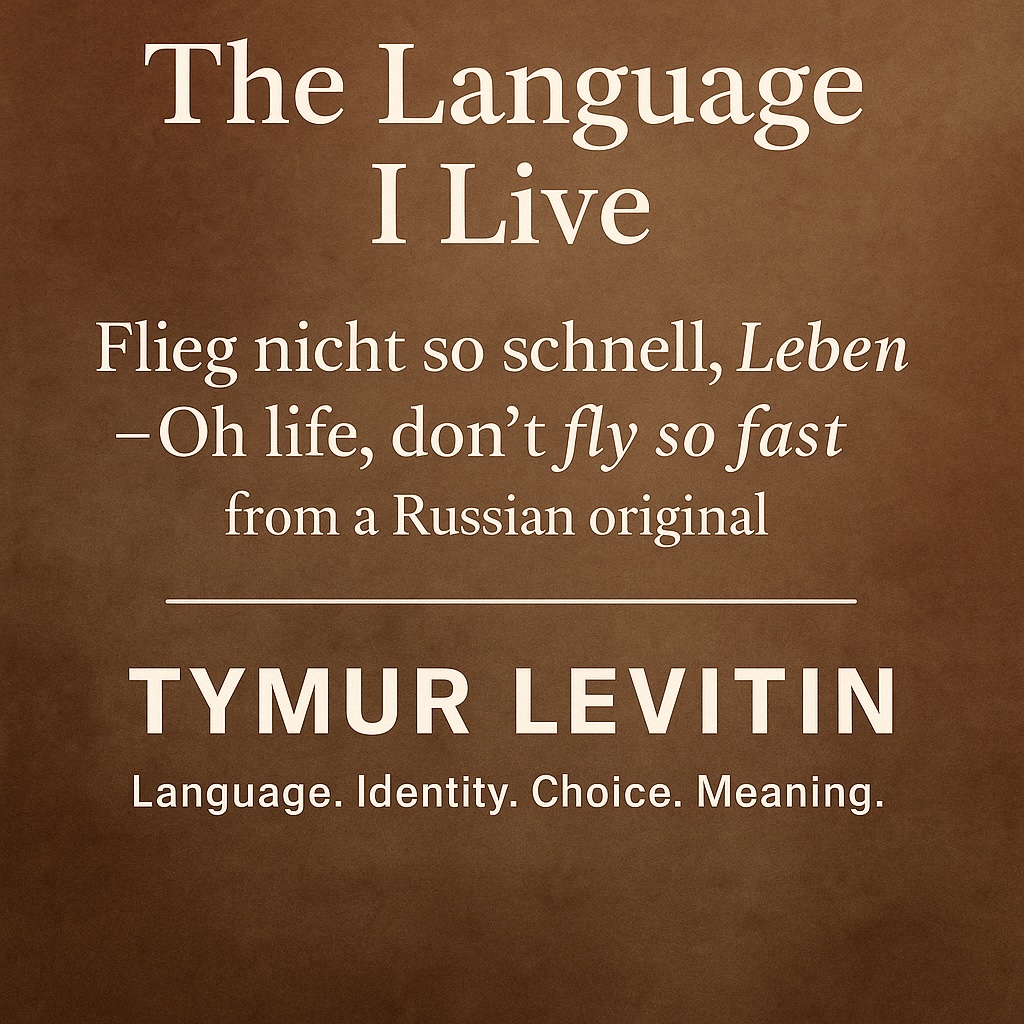«О, не лети так, жизнь…»
— Rauf Kubaev (Russian original)«Flieg nicht so schnell, Leben…»
— German rendering
There are words that tremble between command and plea.
In Russian, this trembling is natural: «не лети» is strict in form but fragile in meaning.
In German, the trembling is gone. Flieg nicht so schnell, Leben — it becomes an order.
And this is exactly why translation is not just about words.
It is about rhythm, grammar, and culture.
Original Text (Russian)
О не лети так, жизнь, слегка замедли шаг.
Другие вон живут, неспешны и подробны.
А я живу — мосты, вокзалы, ипподромы.
Промахивая так, что только свист в ушах.
О не лети так жизнь, я от ветров рябой.
Позволь мне этот миг как следует запомнить.
А, если повезёт, то даже и заполнить.
Хоть чьи-нибудь глаза хоть сколь-нибудь собой.
О не лети так жизнь, на миг но задержись.
Уж лучше ты меня калечь, пытай и мучай.
Пусть будет всё — тюрьма, болезнь, несчастный случай.
Я всё перенесу, но не лети так, жизнь.
English Rendering
Oh life, don’t fly so fast, slow down your step.
Others live slowly, with detail, with order.
And I live — in bridges, train stations, racetracks.
Missing everything, with only the whistle in my ears.
Oh life, don’t fly so fast, I am scarred by the winds.
Let me remember this moment properly.
If I’m lucky, let me even fill it,
At least someone’s eyes, with at least a trace of myself.
Oh life, don’t rush, pause for a moment.
Better cripple me, torture me, test me.
Let it be prison, sickness, misfortune.
I will endure it all — just don’t fly so fast, life.
German Rendering
Flieg nicht so schnell, Leben.
Mach einen Schritt langsamer.
In German, this sounds precise, sharp, even harsh.
Where Russian drags the vowels — “не лети” — German cuts them short.
Where Russian trembles between hope and despair, German delivers a verdict.
Even if you soften it with particles —
“Bitte, Leben, flieg nicht so schnell…” -
it still feels persuasive, not desperate.
What Gets Lost in German
- Ambiguity of tone.
Русский «не лети» is a paradox: a command that is actually a plea.
German imperative cannot carry this duality — it is too strict. - Rhythm.
Russian sings: О не лети так, жизнь — open vowels, soft consonants.
German: Flieg nicht so schnell, Leben — clipped, linear, efficient. - Emotion vs. discipline.
Russian admits weakness: “I can’t keep up.”
German sounds like control: “Life, obey my command.”
Why It Matters in Teaching
For language learners, this is not just poetry.
It is a lesson in how grammar shapes identity.
- In Russian, you can cry in the imperative.
- In German, you can only order — unless you break the rules.
- На английском языке, “Don’t fly so fast, life” sounds neutral, flat.
- In Ukrainian, “Не лети так, життє” carries tenderness, almost a prayer.
This teaches students:
The same words in different languages don’t carry the same soul.
The Man Behind the Words
Why does this matter so much?
Because not everyone could sing it.
If Petlyura sang these lines, they would sound like rebellion.
If Kurenkov sang them, they would sound like tenderness.
But when Rauf Kubaev sings them — they sound like truth.
And that’s the point:
Language is never just about grammar.
It is always about the voice that speaks.
What’s Next
This is part two of our series Язык, на котором я живу.
In the next article, we will move to Ukrainian:
“Не лети так, життє.”
Here, the same plea transforms into melody.
It is not defiance, not command — it is prayer.

Keep Exploring
Язык, на котором я живу - Тимур Левитин
Язык. Идентичность. Выбор. Смысл.






















